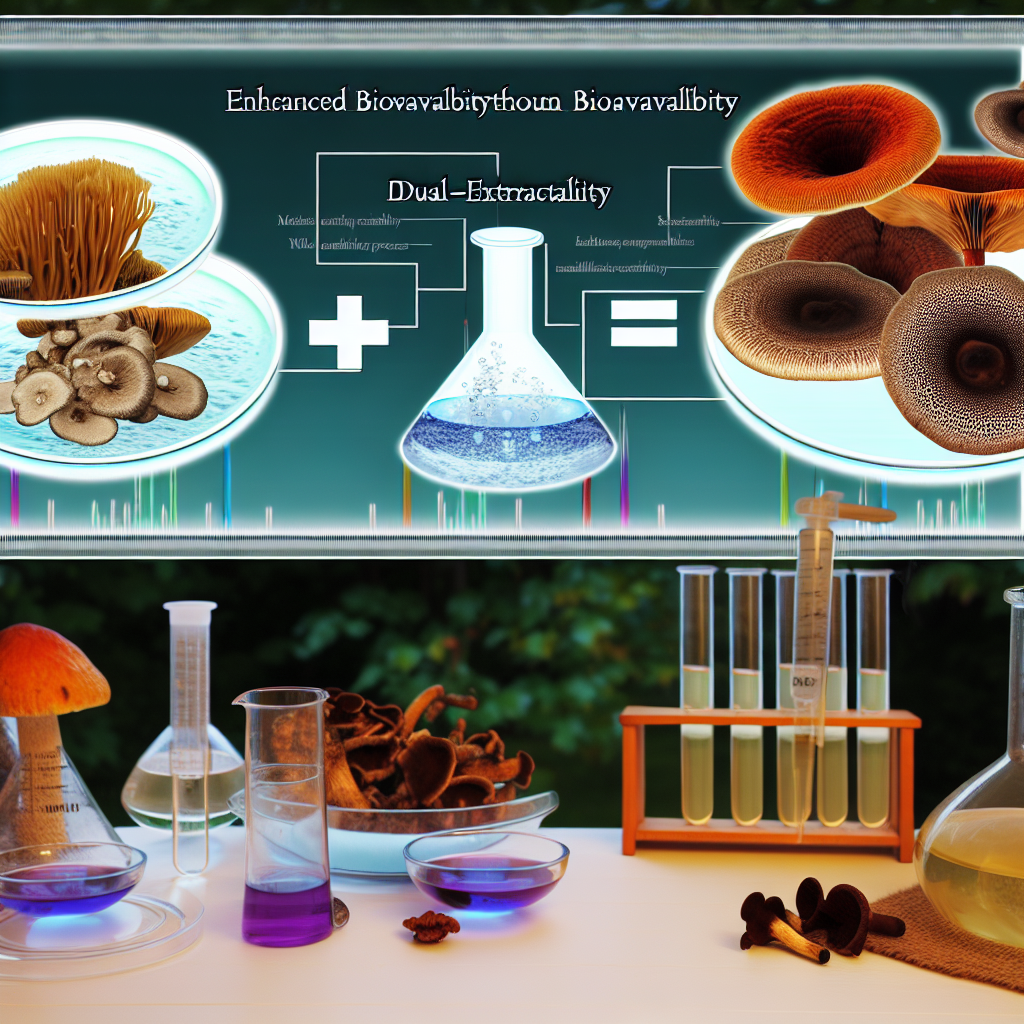Here is the blog post with the requested changes:
Insurance Coverage for Mushroom Supplements: Policy Changes and Advocacy
Introduction: Are Mushroom Therapies Ready for Insurance Reimbursement?
Medicinal mushrooms have rapidly moved from fringe natural remedies to mainstream wellness tools, gaining traction in both alternative and integrative medicine. From lion’s mane and reishi to psilocybin-assisted therapy, mushroom supplements are proving to be more than just a wellness trend. Research now supports their benefits in treating ailments ranging from depression and anxiety to cognitive decline and inflammation.
As more evidence surfaces, the question becomes timely and pressing: Will insurance providers begin to cover the cost of mushroom supplements?
In the current healthcare system, most mushroom supplements fall outside the scope of insurance policies, categorized under “alternative” or “complementary” health products. This classification places the financial burden on patients, restricting access to those who may benefit most—particularly those dealing with chronic stress, mental health disorders, neurodegenerative conditions, and cancer-related fatigue.
However, policy winds are beginning to change. Growing consumer interest, progressive medical research, and mounting advocacy efforts are catalyzing a much-needed conversation within insurance sectors. Mental health professionals, integrative medicine practitioners, and patient advocates are now urging insurers to reassess the therapeutic value of mushroom supplements—including both non-psychoactive adaptogens like cordyceps and psychoactive compounds such as psilocybin, which has shown remarkable promise in therapy-resistant depression.
The broader context of healthcare reform also plays a role. As insurance companies grapple with rising chronic illness rates and mental health crises, alternative treatments that demonstrate cost-effectiveness and clinical efficacy present an attractive option. Preventative care strategies and integrative therapies—especially those supported by rigorous science—could reduce long-term healthcare costs and improve outcomes.
Emerging legislation in progressive regions (such as Oregon and parts of Colorado) is also pushing insurers to re-evaluate their coverage plans. With psilocybin being legalized in therapeutic contexts and the FDA granting “breakthrough therapy” status, there’s a burgeoning recognition that mushroom-based treatments are not only safe when used appropriately, but also therapeutically powerful.
In this article, we explore the developments in insurance policy regarding medical mushroom treatments, examine the evolving landscape of advocacy, and highlight evidence from ongoing professional and medical studies.
Scientific Research Sparks Change in Insurance Conversations
Scientific research into medicinal mushrooms has surged in recent years, providing a robust foundation for their potential inclusion in insured healthcare strategies.
For example, studies on lion’s mane (Hericium erinaceus) have demonstrated neuroregenerative effects in patients with cognitive impairment. A 2019 clinical trial published in the Journal of Alzheimer’s Disease found that daily lion’s mane supplementation significantly improved cognitive function in elderly patients over a 12-week period ([source](https://pubmed.ncbi.nlm.nih.gov/30892964/)).
Similarly, reishi (Ganoderma lucidum) has shown adaptogenic properties, enhancing immune function and alleviating fatigue in cancer patients. A 2021 meta-analysis in Frontiers in Pharmacology reviewed multiple studies confirming improvements in immune markers and quality of life metrics after reishi supplementation ([source](https://www.frontiersin.org/articles/10.3389/fphar.2021.620863/full)). These findings provide weight to the argument that such supplements could be considered part of a broader therapeutic regimen reimbursable by insurance.
Psilocybin in the Spotlight: Breakthrough Therapy Making Waves
Perhaps the most impactful development is the resurgence of interest in psilocybin, the psychoactive compound in so-called “magic mushrooms.” In 2019, the FDA designated psilocybin-assisted therapy a “breakthrough therapy” for treatment-resistant depression. This status fast-tracks clinical trials and acknowledges the drug’s significant therapeutic potential compared to current treatments ([source](https://apnews.com/article/psilocybin-depression-therapy-fda-designation-9ae05cbb0e48431c8d757ed1cbe1ac6e)).
Organizations like Compass Pathways and Usona Institute have initiated large-scale Phase 2 and 3 clinical trials, with outcomes showing that a single dose of psilocybin, administered in a controlled psychological setting, can profoundly reduce symptoms of depression and anxiety. These trials are crucial in shaping future insurance policy decisions. If approved by the FDA for widespread use, psilocybin therapies could be included in mental health coverage provisions.
States Lead the Way: Legalization and Pilot Insurance Programs
Early signals of insurance adaptation are already visible. In Oregon, where psilocybin therapy has been legalized, there’s increasing pressure on state-run insurance programs to partially reimburse these treatments.
Private insurers, too, have started pilot initiatives exploring coverage options for integrative therapies like acupuncture, meditation, and botanical supplements. Medicinal mushrooms are increasingly grouped under similar categories—especially when administered under medical supervision.
Institutions such as Johns Hopkins, the Multidisciplinary Association of Psychedelic Studies (MAPS), and the Imperial College London Psychedelic Research Centre are pioneering high-quality research, lending credibility to mushroom-based treatments. As findings from these studies are peer-reviewed and publicly funded, the likelihood increases that mushroom therapies could soon meet insurance qualification thresholds for medical necessity.
Conclusion: A Path Toward Accessible, Mushroom-Based Care
As clinical data accumulate and public perception shifts, mushroom-based supplements and therapies—both psychoactive and non-psychoactive—are poised to challenge conventional models of healthcare reimbursement. The intersection of science, policy, and advocacy is reshaping how we define effective treatment.
While full insurance coverage for mushroom supplements isn’t guaranteed yet, it is increasingly plausible. Continued clinical validation, community advocacy, and legislative progress will play pivotal roles in making these natural therapies accessible and affordable for all.
## Summary
The blog post explores the growing movement to get insurance coverage for medicinal mushroom supplements, including both non-psychoactive adaptogens like lion’s mane and reishi, as well as psychoactive compounds like psilocybin. It outlines the current barriers to coverage, the emerging scientific research supporting the therapeutic benefits of these mushrooms, and the policy changes and advocacy efforts underway to push insurers to reconsider their coverage policies. The article concludes that while full coverage is not yet guaranteed, the intersection of science, policy, and advocacy is reshaping the healthcare landscape in a way that makes insurance coverage for mushroom-based therapies increasingly plausible.
## References
– [Journal of Alzheimer’s Disease study on lion’s mane](https://pubmed.ncbi.nlm.nih.gov/30892964/)
– [Frontiers in Pharmacology meta-analysis on reishi](https://www.frontiersin.org/articles/10.3389/fphar.2021.620863/full)
– [AP News article on FDA’s psilocybin “breakthrough therapy” designation](https://apnews.com/article/psilocybin-depression-therapy-fda-designation-9ae05cbb0e48431c8d757ed1cbe1ac6e)
– [Johns Hopkins Center for Psychedelic and Consciousness Research](https://hopkinspsychedelic.org/)
– [Multidisciplinary Association for Psychedelic Studies (MAPS)](https://maps.org/)
– [Compass Pathways clinical trials](https://compasspathways.com/clinical-trials/)

Dominic E. is a passionate filmmaker navigating the exciting intersection of art and science. By day, he delves into the complexities of the human body as a full-time medical writer, meticulously translating intricate medical concepts into accessible and engaging narratives. By night, he explores the boundless realm of cinematic storytelling, crafting narratives that evoke emotion and challenge perspectives. Film Student and Full-time Medical Writer for ContentVendor.com



